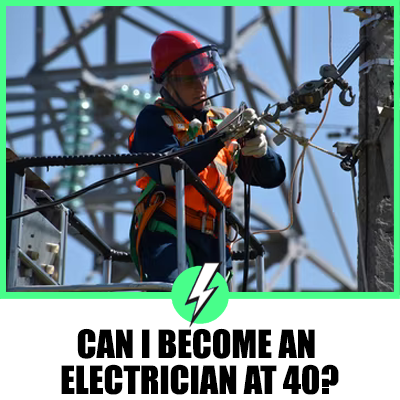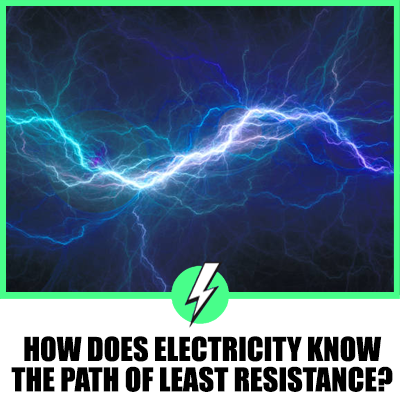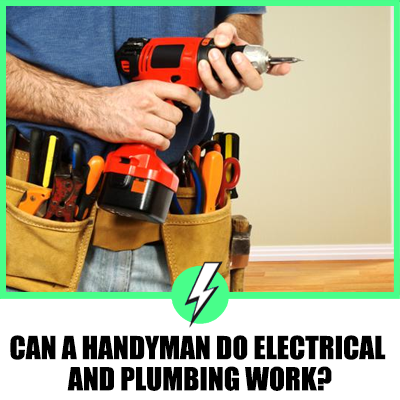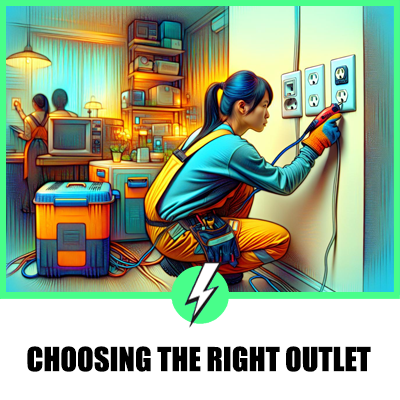Can I Become An Electrician At 40?
At the age of 40, is it a realistic prospect to retrain for a different career? What are some of the main hurdles to overcome?
You can retrain at any age, even at 40, when you are relatively young and have many years ahead of you. Your biggest challenge will be financial, and you will be starting at the bottom of the ladder, which can be painful if you have financial obligations.

Contents
Is 40 too old to start an apprenticeship?
Apprenticeships are not age-related. You will be considered for an apprenticeship based on your education and attitude.
However, an apprenticeship may not be the best way for you to learn. Companies tend to recruit apprentices from the age of 16 to 25, so at 40, you might not be the best profile to fit in with the group.
Having said that, many companies prefer mature trainees due to attitude and life experiences, so don’t be put off applying if this is a route you would like to take.
Do you need to be fit to become an electrician at 40?
Yes, there is no need to be able to run a marathon or lift heavy weights, but you will be up and down step ladders all day. You need to be more agile than fit to complete some of the workloads required from you.
What’s the quickest route to qualify as an electrician at 40?
There is no quick way to qualify, and all UK electricians need specific qualifications to allow them to work as an electrician.
If you want to quickly pick up some tangible skills, you could join a course operated by a specialist outlet to train domestic installer electricians.
Many of the courses are supported by grants and may not cost you a penny to join, but you will need to check regularly as the government moves the goalposts.
If you join a domestic installer course, you will be trained to work in domestic homes fitting sockets, consumer units and even full house re-wires.
A side issue is don’t feel you will be the oldest person in the class, there are lots of folks learning trades at all ages, and you will be training with like-minded folks.
How do I become a domestic electrician in the UK?
To be considered a qualified electrician, you will need to complete theoretical courses to an NVQ diploma level 3.
If you are an academic and think you can fly through the theory work at college, you will need to think again. NVQ courses are designed to make sure you know the job’s theory and practical side.
After 3 to 4 years, you should have gained the following qualification and be considered a domestic installer electrician.
- City & Guilds 2365 Level 2 Diploma in electrical installations (building and structures)
- City & Guilds 2365 Level 3 Diploma in electrical installations ( buildings and structures)
- City & Guilds 2357 Level 3 NVQ Diploma in electrotechnical technology
How do I gain practical experience?
If you are working for a company, the day release or night school will run concurrently with your practical experience.
However, your practical training becomes more onerous if you are not employed. You will be responsible for gaining the practical experience required to produce the evidence to pass the NVQ level 3 Diploma.
The best option is to approach a domestic installer in your early days of training and offer to work for free. You may want to do this on weekends if you have a job.
Working for free sounds horrendous to most folks, but you are gaining invaluable practical knowledge needed to pass the final NVQ.
If you have started your NVQ 3, you may be able to find a company that will take you on as an electrician’s mate to retain you when you are qualified.
Can a qualified domestic installer become self-employed after NVQ 3?
Yes, in theory, but you will still need to get your work signed off by a fully accredited electrician. Getting an electrician to sign off your work will attract an invoice from the qualified electrician, making your work expensive.
You will need a minimum of two years of experience under your belt before applying to be accredited.
The accreditation route is a minefield, and you will need to take advice on what’s best for you when you reach that point. Most sparks opt for the NICEIC accreditation and then move to a JIB gold card.
Where can I get a JIB gold card and what are its benefits?
As with any accreditation, there are some requirements to meet, as follows:
- You will need a Diploma level 3 for electrotechnical installations
- A minimum of two years of on-site experience with a portfolio of signed off projects completed
- Competency in testing and inspection, which is the final module of the NVQ 3 Diploma
- An ECS electrical engineers card to prove you have worked in a supporting position to a senior electrician
- Electrical engineering skill sets that can be demonstrated
- A full understanding of industry requirements and 18th edition wiring certified
Once you become accredited, you will be deemed a competent electrician and can sign off your work.
The JIB gold card will allow you to work on a building site unsupervised and without the need for your work to be checked over.
Certain domestic jobs need to be notified to the local council. If you are not accredited as competent, the fee can be high at 300 pounds plus, and if accredited, it’s just a few pounds.
Will I be qualified to produce an EICR?
According to NICEIC, you will need to be registered as a contractor to produce an electrical condition report.
Despite being tightly regulated, there is conflicting information in the industry. You will be on a constant learning curve until the day you decide to retire.





